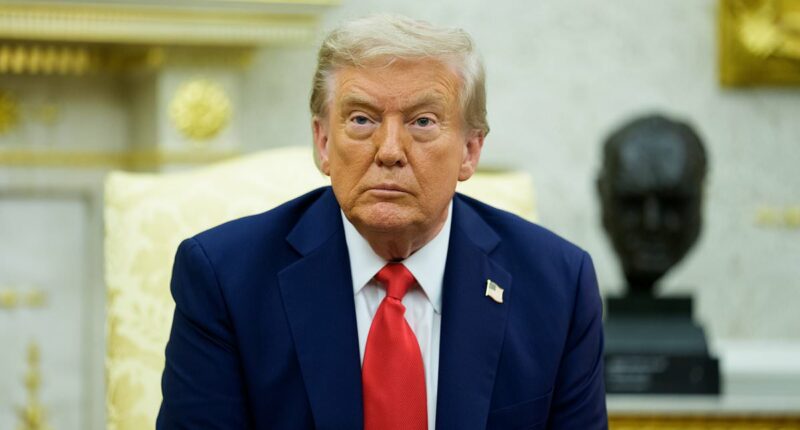Share this @internewscast.com
Even foreigners holding valid U.S. visas could be subject to deportation thanks to a new State Department policy under the Trump administration.
The Associated Press reported on Thursday that the State Department is scrutinizing the records of 55 million visa holders to determine if any have violated regulations, potentially making them ineligible to reside in the United States.
The department told the AP that visa holders are subject to ‘continuous vetting.’
‘We examine all accessible data during our vetting process, including any law enforcement or immigration records and other information that emerges post-visa issuance which suggests a potential issue,’ stated the State Department.
The department informed the AP that it aims to identify individuals who have overstayed their visas, engaged in criminal activities, or posed public safety threats.
They mentioned specifically engaging in any form of terrorist activity or providing support to a terrorist organization.
If a violation is detected, that person’s visa may be revoked, leading to potential deportation, similar to the deportation of tens of thousands of illegal immigrants since the onset of President Trump’s second administration.
The policy shift indicates a major deportation escalation, as visa holders are in the United States legally.


Under the leadership of President Donald Trump and Secretary of State Marco Rubio, the State Department is now meticulously examining 55 million visas of individuals legally in the U.S. to identify any infractions that could result in deportations.
President Donald Trump secured a second term promising the nation’s largest mass deportation, although his campaign primarily targeted migrants entering the U.S. illegally via the southern border.
The administration has steadily imposed more restrictions and requirements on visa applicants, including requiring them to submit to in-person interviews.
The review of all visa holders appears to be a significant expansion of what had initially been a process focused mainly on students who have been involved in what the government perceives as pro-Palestinian or anti-Israel activity.
Officials say the reviews will include all visa holders’ social media accounts, law enforcement and immigration records in their home countries, along with any actionable violations of U.S. law committed while they were in the United States.
‘As part of the Trump Administration’s commitment to protect U.S. national security and public safety, since Inauguration Day the State Department has revoked more than twice as many visas, including nearly four times as many student visas, as during the same time period last year,’ the State Department said.
The vast majority of foreigners seeking to come to the U.S. require visas, especially those who want to study or work for extended periods.
Among the exceptions for short-term tourist or business visits are citizens of the 40 mainly European and Asian countries belonging to the Visa Waiver Program, which grants those nationals a stay of up to three months without having to apply for a visa.

A protester is arrested in Los Angeles clashing with federal agents over President Donald Trump’s Immigration and Customs Enforcement actions. Trump campaigned on deporting illegal immigrants but people in the U.S. legally are now being scrutinized as well
But large swaths of the world – including highly populated countries like China, India, Indonesia, Russia and most of Africa – are not part of the program, meaning their citizens must apply for and receive visas to travel to the United States.
Earlier this week, the department said that since Trump returned to the White House, it has revoked more than 6,000 student visas for overstays and violations of local, state and federal law.
The vast majority of those were assault, driving under the influence of alcohol or drugs and support for terrorism.
It said about 4,000 of those 6,000 were due to actual infractions of laws and that approximately 200 to 300 visas were revoked for terrorism-related issues, including providing support for designated terrorist organizations or state sponsors of terrorism.

















